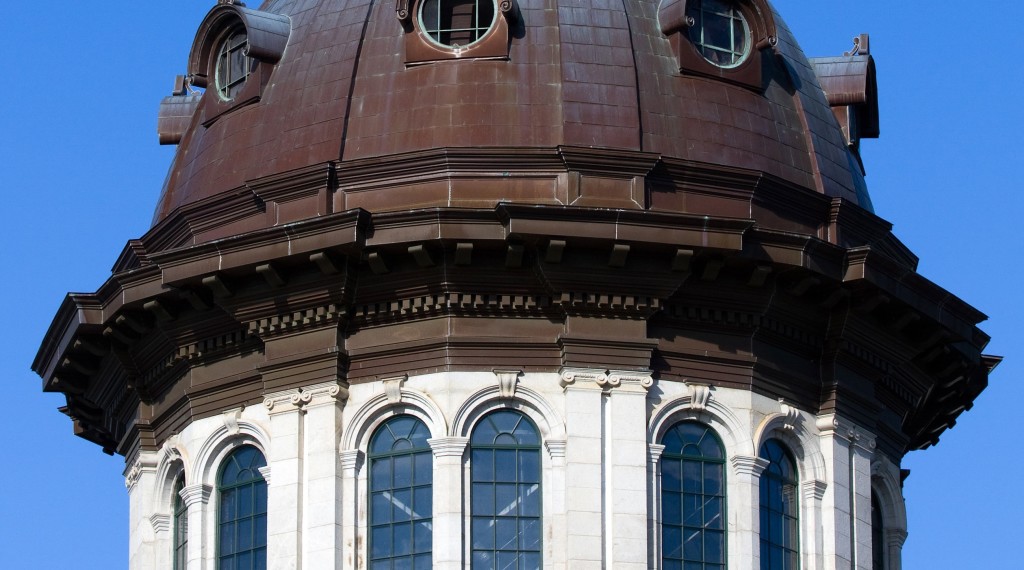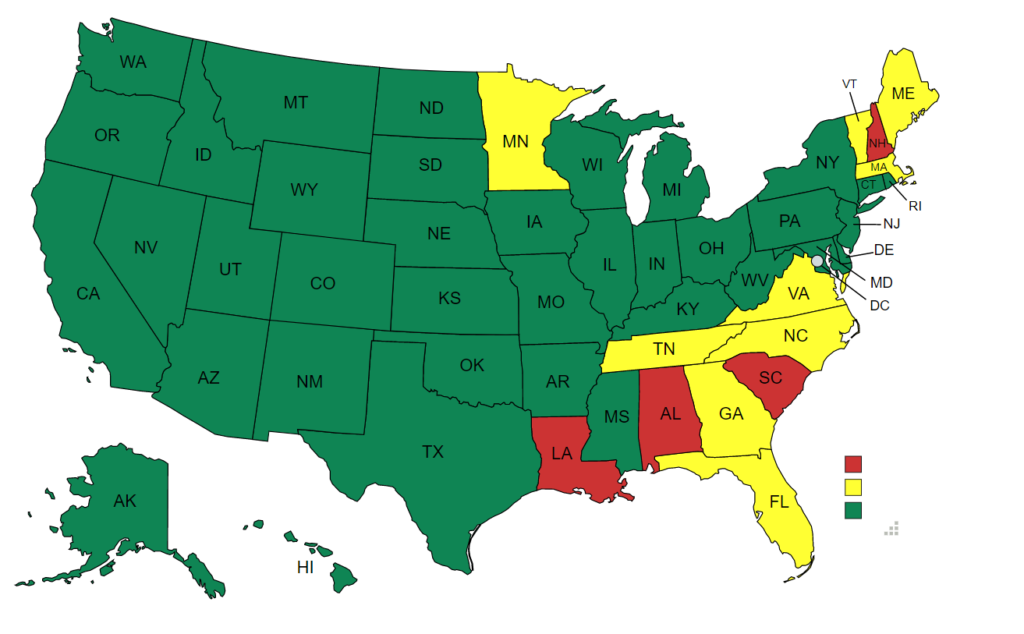South Carolina’s county legislative delegations, comprised of the lawmakers representing each of the state’s 46 counties, are among the most powerful in the nation. In fact, most states don’t even recognize such delegations, and where they do, many have weak, if any, power.
How common are delegations?
SCPC and The Nerve have spent the last few months closely examining the power of legislative delegations in South Carolina. Our research has shown they have tremendous influence over state and local government, affecting everything from road repair projects, education policy, and the selection of powerful local judges.
These findings raise an important question: Is this normal? To answer this question, the Policy Council looked at the each of the 49 other states to find out if delegations of this sort exist elsewhere, and if so, how their powers compare to those in South Carolina.
The ranking process
States in this project were assigned to one of three categories:
1) Have delegations with significant power (marked in red) – States in this group have delegations with powers similar to those found in South Carolina. These include appointment powers to influential government boards/commission, and/or control over local government spending and affairs.
2) Have delegations with moderate to minimal power (marked in yellow) – States in this group range from having delegations with appointment power over less significant boards/commissions, and/or delegations that primarily serve as oversight bodies.
3) Do not have or recognize delegations (marked in green) – States in this group do not officially recognize county legislative delegations. While it is possible that legislators representing a particular county could organize from time to time as a delegation, the state does not give them special legal power.
The results
Based on our findings, only three states (Alabama, Louisiana, and New Hampshire) have delegations with powers that compare to those in South Carolina, and South Carolina delegations arguably remain the most powerful.
Alabama – Legislative delegations in Alabama have varying levels of control over a large number of public appointments, including those to tourism, economic development, historical preservation, and wastewater boards. At least some, like in South Carolina, also have dedicated full-time staff and offices.
Louisiana – Delegations have either partial or majority control of appointments to a series of boards and commissions across Louisiana, including to several critical levee authorities responsible for regulating water levels and preventing flooding. Similar to delegation tactics used in South Carolina, while the governor usually makes such appointments, he or she may only appoint someone first nominated by the legislative delegation representing the area in question.
New Hampshire – According to New Hampshire state law, those elected to the NH House of Representatives serve as both state legislators as well as representatives for their county governments (as delegation members). Delegation responsibilities include reviewing and approving county annual budgets, approving the sale and use of county property, and even hearing county personnel disciplinary cases.
SC delegations are unusually powerful, that’s a problem
With few exceptions, our system of giving small groups of legislators control over critical state and local appointments is highly unusual, as is delegations’ influence over gas tax spending. In fact, some examples of delegation power in South Carolina were not found anywhere else, such as senatorial delegations (sometimes comprised of just one senator) having a primary role in the selection of powerful local judges.
At its core, the delegation system ultimately serves the interests of politicians, not citizens. It allows lawmakers to leverage their power at the Statehouse to influence local affairs and reward their allies. For example, two bills this filed this year – introduced by county delegation members – would use gas tax funds to pay local transportation officials. This, coupled with the fact that delegations can make project recommendations to such transportation officials at any time (many of whom are also appointed by delegations), begins to illustrate how easily delegations can affect important transportation matters.
Worse, much of this power is invisible to your average citizen, making it difficult to know who to hold accountable for important public decisions. This is largely because the system of laws that form the delegation system are decentralized, misleading or difficult to find. For instance, the Charleston County Aviation Authority, which operates the Charleston International Airport and is appointed by the Charleston County Legislative Delegation, isn’t even found in the SC code of laws. Meanwhile, appointment details about the Richland-Lexington Airport District found on the City of Columbia website are factually inaccurate (it claims all members are appointed by local government, while the law states that 10 of 12 members are appointed by delegations).
Counties and the delegations themselves aren’t doing much to help, either. Earlier this year, The Nerve looked at 12 county websites and found that many only include a list of delegation members and don’t post meeting dates, agendas or minutes. Some county websites don’t even contain a designated page for delegations.
This raises two final points. First, more transparency is desperately needed. If delegations are going to continue to exist, information about their membership, powers and meetings should be easily accessible to the public and featured in a single location, such as on the Statehouse website (the current page is severely lacking). Second, the more extreme delegation powers, like having control over magistrate appointments and electing county transportation boards, should be limited, if not removed from the delegations entirely.
For a more complete look at the power of delegations in South Carolina, read our report found here.


